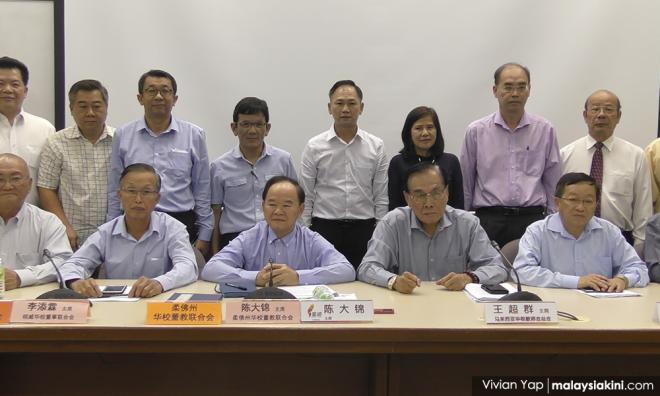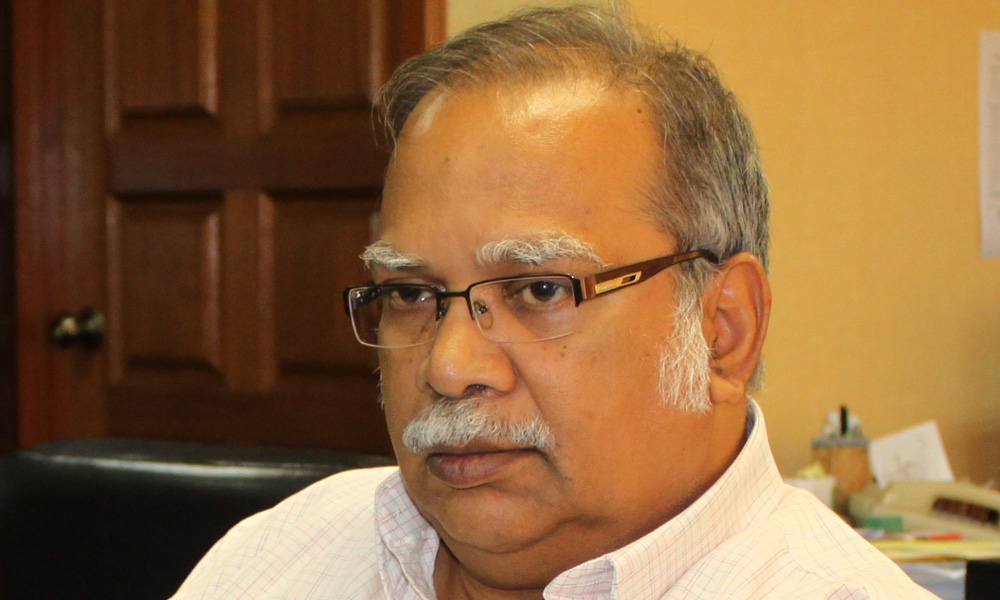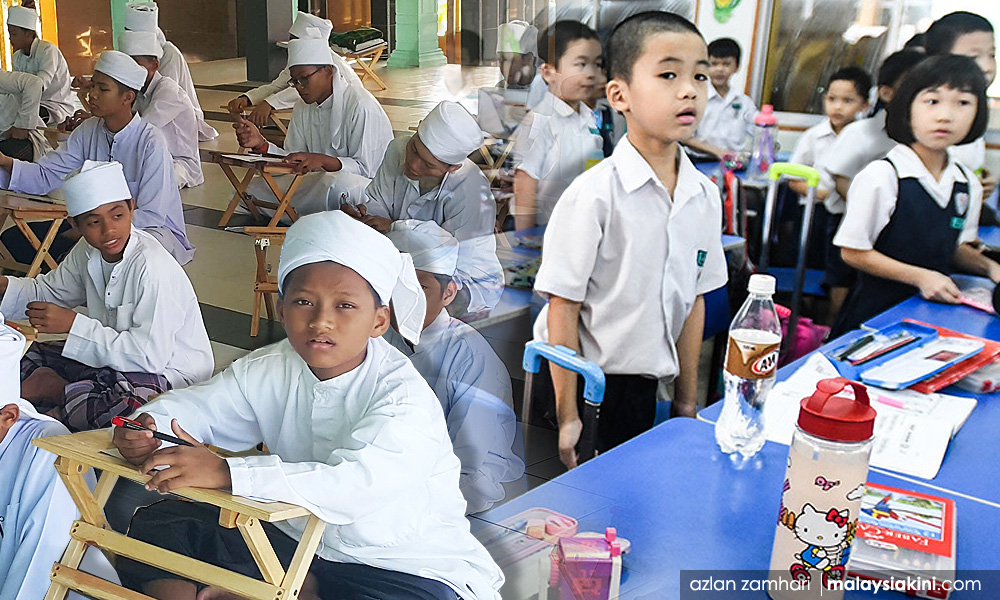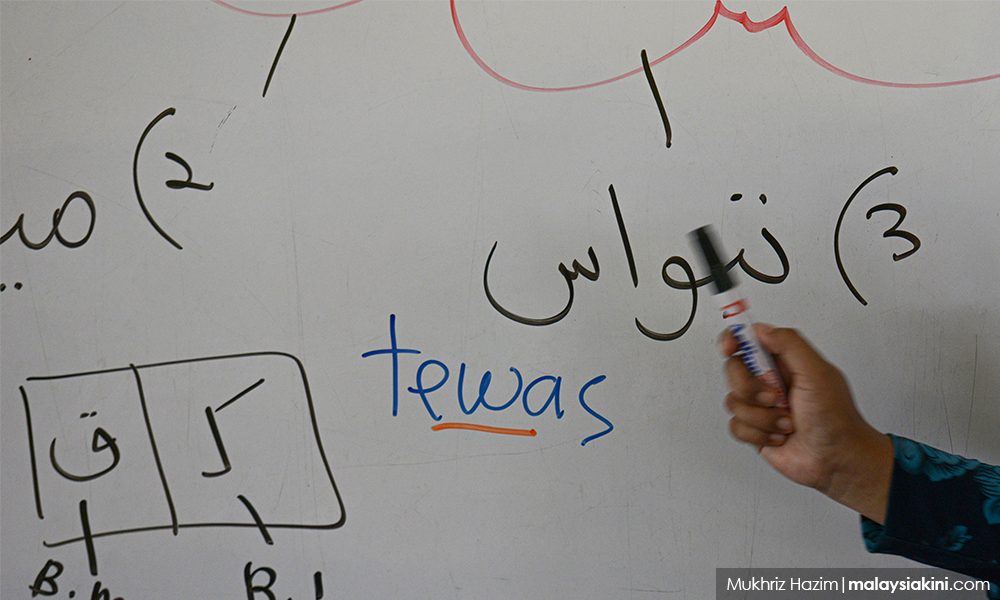
“[Kids] don't remember what you try to teach them. They remember what you are.”
- Jim Henson, 'It's Not Easy Being Green: And Other Things to Consider'
As someone who has been accused of being “anti-Malay” and “anti-Muslim”, the idea that I think this Chinese Organisations Congress (COC) is a dumb idea is amusing.
In addition, I do not think that Dong Jiao Zong needs to “respect” the cabinet decision as claimed by the boy minister. Yes, Dong Jiao has the right to hold the congress and they should be allowed to air their views without threats of sanction.
P Ramasamy – who I have often described as the conscience of Harapan – made a couple of points which I take issue with. The first, he wrote: “I think the intention of Dong Zong to hold the congress must be respected in the spirit of democracy.”
Here is the thing though. Dong Jia, while expecting its democratic rights to be championed, is not allowing the democratic process to thrive in vernacular schools. What Dong Jiao Zong needs to respect is the democratic process which they are trying to stifle with the help of dog-whistle politics.
The second point I have an issue with is when Ramasamy (below) said: “In the absence of endorsement of Dong Zong, Chinese-based political parties might not have the legitimacy of the support of the Chinese community.”

This is very strange. First off, I didn’t realise there were “Chinese-based“ political parties in Harapan. Secondly, how can anyone define what it means to be “Malaysian” when ethnic-based education groups use single issues to define the discourse, either political or social?
While the old maverick and the far-right will no doubt use this as another opportunity to react in “a very Malay way”, this is par for the course in the rotten times we live. While the Chinese educationists are blowing their dog whistle, the Malay establishment is doing the same.
However, in this instance, I am not concerned with the possible outrage of the agents of the fascist state. In this instance what bothers me, is the justification for the COC and the absurd lengths some folks would go to, to instil anti-democratic ideas in our education system. Moreover, I am not talking about the state here. I talk about state-induced fascism on a regular basis.
If this “congress” is supposed to convince the state to cancel lessons in vernacular schools, then why is it a “Chinese Organisations Congress”. Language is important. We talk about dog whistle “Malay” politics; this is dog whistle non-Malay politics. The idea is to get minority communities worked up and miss the real issue at hand.
When statements like this are made – “It is to show the Chinese community’s determination on the matter and show the community’s strength, voices and hopes so as to draw the government’s attention and resolve the problem” - what does this say about the "Chinese" community when Chinese education groups are objecting, on spurious grounds, for parents deciding on what their children learn?
Inviting Tamil educationists is merely a fig leaf, and hopefully, Tamil ”educationists” decide to practice more democracy in their schools and learn from the process, instead of joining this congress, because the real issue is not loss of cultural identity, but rather a loss of “sovereignty” to democratic processes.

And how exactly is this going to “ruin the relationship among parents from different ethnicities who send their children to vernacular schools"? I would think that Chinese educationist groups using this issue, instead of letting the democratic process play out, is what could ruin the relationship among the different ethnicities. People don’t mind losing if they don’t have to have their noses rubbed in it by people who use this issue as some sort of dog whistle.
The real issue is not that the state is imposing these lessons. It is the anxiety of these schools that, voted in a democratic manner, the “ideas” of the state will seep into these schools. What kind of fascist thinking is it when Dong Jiao Zong is concerned that the new guidelines will turn PTAs into an "enforcement tool" for gathering opinions?
First off, the PTA is already a process in which opinions are gathered, and as far as it is an “enforcement tool”, I have no idea, and neither does Dong Jiao Zong, if these kinds of guidelines are going to be the norm from the Ministry of Education (MoE).
Even if it becomes a norm, I would argue that giving PTAs the option of accepting or rejecting proposed policy initiatives from the state is a good thing. Something that not only enhances democratic imperatives in the grassroots, but also exposes the general public to policy decisions which they should be doing, instead of leaving these decisions to mandarins who believe they know better.
It is always a good thing when children see their parents active in the democratic process, especially when it comes to issues that affect them. Hopefully, this will lead to more space for children and young people to engage in processes which affect their futures and not leave everything in the hands of people who think they know better, but can't come up with rational arguments to defend their political or religious stances.

Do I think teaching Jawi in schools – vernacular or otherwise – is a good thing? No, I do not. If I had a schoolgoing child, my vote would be 'no'. But here’s the thing, it is up to the school boards to make the case to the PTAs as to why they oppose this and not restrict the democratic process because they believe they, and they alone, should determine the issues at play.
All this seems so basic to me. We live in a country where the “big daddy” government tells us what is right for us. We have numerous intellectuals telling us that the state is controlling every aspect of our lives.
Now it seems we have “Chinese” educationists who do not want democratic processes in their schools. Do not want PTAs to debate and determine a course of action. Do not want children to see how the democratic process impacts their lives in a meaningful way.
Now, the MoE should take into account schools with no PTAs and allow the same option of rejecting or accepting Jawi lessons. If anything concerns me about these guidelines, it is this very issue, which is schools that do not have PTAs.
What the state should do, is to make available the same democratic process which “better off” schools have, and not take the easy way out and implement ideas without consulting the stakeholders who truly matter - the parents.
This is where we should focus our attention. Schools that do not have PTAs cannot participate in this process, and this is where the state can take the easy way out and impose on these unlucky schools.
That’s the real issue, that the state may impose these lessons without the consent of parents. But why are these Chinese educationists so insecure?
As someone whose politics is not mainstream, I am always anxious when it comes to the majority imposing values, which I find fascist, on me. But that's democracy for you. Most often it sucks.
Surely, if these Chinese educationists believed that parents would find this as a repulsive idea as they do, why are they so afraid of letting parents decide on this issue?
S THAYAPARAN is Commander (Rtd) of the Royal Malaysian Navy. A retired barrister-at-law, he is one of the founding members of Persatuan Patriot Kebangsaan. - Mkini



No comments:
Post a Comment
Note: Only a member of this blog may post a comment.